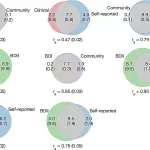Many medical students experience imposter syndrome (IS), which is characterized by feelings of inadequacy and self-doubt despite their accomplishments.
What is Imposter Syndrome?
IS is not the same as low self-esteem or occasional anxiety. It specifically affects students in high-achievement fields like medicine, and it can be particularly common among students from underrepresented backgrounds.
Students with IS often:
- Set unrealistic expectations for themselves
- Focus on their mistakes and downplay their successes
- Believe they are not as intelligent or competent as their peers
- Fear being “found out” as an imposter
How Does Imposter Syndrome Affect Medical Students?
IS can lead to a number of negative consequences, including:
- Increased stress and anxiety
- Decreased motivation and performance
- Difficulty seeking help or feedback
- Social isolation
Overcoming Imposter Syndrome
There are steps you can take to overcome IS:
- Acknowledge that IS is real. Understanding that IS is a common experience can help you feel less alone.
- Reframe your thinking. Instead of focusing on your shortcomings, focus on your accomplishments and your progress.
- Seek support. Talk to your peers, faculty, or a therapist about your feelings.
- Develop healthy coping mechanisms. Find healthy ways to manage stress and anxiety, such as exercise, relaxation techniques, or spending time with loved ones.
Additional Tips for Medical Students
- Find a mentor. A mentor can provide you with guidance and support as you navigate medical school.
- Join a study group. Studying with other students can help you learn the material and feel more connected to your peers.
- Celebrate your successes. Take time to acknowledge your accomplishments, no matter how small.
Remember, you are not alone. Many medical students experience imposter syndrome. By understanding IS and taking steps to overcome it, you can create a more positive and fulfilling experience in medical school.
Here are some additional resources that you may find helpful:
- The Imposter Syndrome Institute: https://impostorsyndrome.com/
- The American Medical Student Association: https://www.ama-assn.org/











